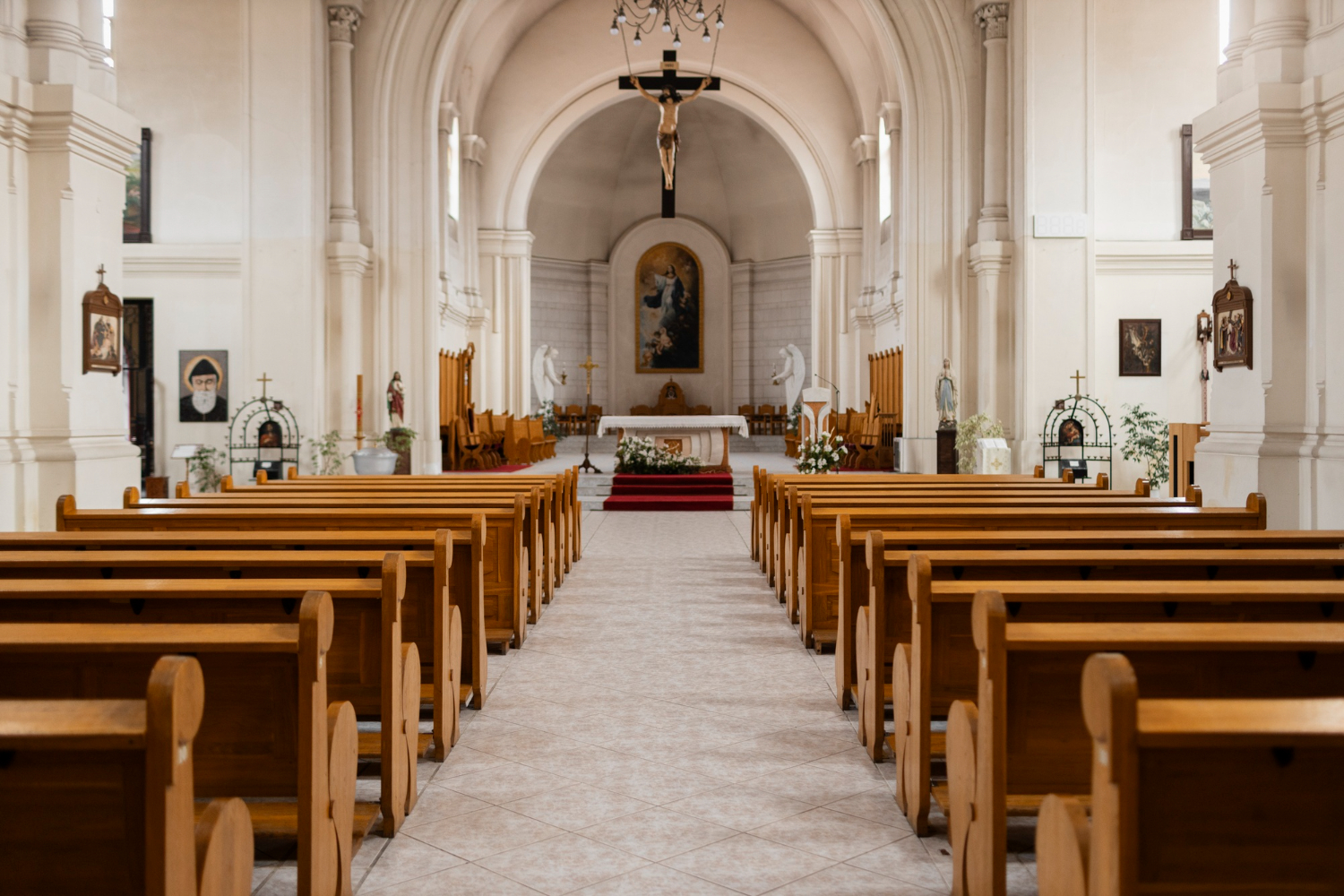
Catholic Missions Step Up Ministries For Agriculture, Business, Health, Infrastructure, Jobs, Schools In Africa
In the face of the pandemic, climate change, more famine, war and death in Africa, Catholic missions are establishing and expanding their ministries to meet the growing needs of the continent’s residents in agriculture, business, finance, health care, infrastructure, jobs and education on all levels, diocese leaders say.
Although the history of the Catholic Church in Africa dates back to the early 20th century when the number of parishioners reached one million and were confined to Europeans confined visiting the continent and associated with colonialism and transAtlantic slavery, it is the fastest-growing faith on the continent, eclipsing Islam and matching Protestant Christianity.
This goes beyond nations once under Belgium such as Congo Republic, Rwanda and Burundi, the francophone countries of Algeria, Benin, Burkina Faso, Chad, Cameroon, Central African Republic, Comoros, Congo, Djibouti, Equatorial Guinea, Gabon, Guinea, the Ivory Coast, Madagascar, Mali, Morocco, Niger, Senegal, Seychelles, Togo and Tunisia or the lusophone or Portuguese-speaking ones of Angola, Cape Verde, Guinea-Bissaau, Macau, Mozambique and Sao Tome and Principe.

It also extends to anglophone countries as well as such as Egypt, Ghana, Kenya, Malawi, Nigeria, Rwanda, South Africa, which also speaks Afrikaans as it is related to Dutch, Sudan, Tanzania, Uganda, Zambia and Zimbabwe.
According to research from the Vaticans, Catholics number 1.5 billion around the world. Meanwhile, the continent’s population of 1.5 billion has increased by nearly 50 million with its Catholic population growing to nearly 10 million.
At the start of 2023, Pope Francis exhibited pastoral interest in Africa, visiting the predominately Catholic Congo Republic and South Sudan. As a result of his care, Mass attendance and the number of priests and other clerics rose substantially since the start of the millennium.
Over the past decade, the Catholic Church and its missionaries have embraced greater responsibilities aside from religious ministry to taking on relevant socioeconomic issues.
For the past few decades, Catholic ministries are now more firmly established in the areas of agriculture, business, employment, finance, health care, infrastructure and primary, secondary and higher education and reform.
In this manner, the Church helps maintain the general welfare of especially low-to-moderate-income African parishioners while also minding their evangelization.
The following are some of the ways that the Catholic Church is managing the socioeconomic and religious needs of the faithful in Africa.ough eventually this growth will slow down gradually until 2100 when it reaches 4.3 billion.
Educational Development

Catholic missions have a long history of establishing and supporting schools in Africa, often in areas where public education is limited or non-existent.
Today, Catholic education in Africa includes primary and secondary schools, technical training centers, and even universities.
These institutions are often open to people of all faiths and emphasize values like community service, discipline, and ethical leadership. Many Catholic schools are also expanding curricula to include vocational training, helping students develop skills in trades like mechanics, agriculture, and information technology, which are essential for local economic growth
Healthcare Infrastructure and Services

Catholic missionaries play a substantial role in providing healthcare services, especially in remote and underserved areas.
Catholic hospitals and clinics deliver essential care, including maternal health services, HIV/AIDS treatment, malaria prevention, and mental health support.
With a focus on accessibility and compassion, these healthcare institutions often serve the most vulnerable, regardless of religious affiliation, and work to fill healthcare gaps where government infrastructure is lacking.
In many regions, Catholic healthcare facilities are known for their high standards, making them critical to overall public health efforts.
Social Justice and Advocacy
Many Catholic missions are active in advocating for human rights, social justice, and peacebuilding.
The Church’s teachings on social justice have led missionaries to address issues like human trafficking, child labor, and gender-based violence, often working with local communities to create awareness and protect vulnerable populations.
Catholic leaders and organizations are also vocal about the importance of fair governance, anti-corruption measures, and conflict resolution, positioning the Church as a moral guide in the pursuit of social and political stability.
Agricultural Development and Food Security
In many African countries, Catholic missionaries are involved in agricultural development projects that support local communities in achieving food security.
These initiatives include training in sustainable farming practices, soil conservation, and crop diversification, helping communities become more resilient to climate change and food shortages.Catholic missions often partner with local farmers to promote techniques that increase yields and reduce environmental impact.
By promoting self-sufficiency and sustainable agriculture, these efforts also contribute to economic stability and reduce dependency on aid.
Community Infrastructure Projects
Catholic missions frequently assist with infrastructure projects that support community development, such as building wells, roads, and community centers.
These projects help create the basic infrastructure that communities need for day-to-day life and economic activity.
For instance, access to clean water can transform a community’s health and productivity, while roads facilitate trade and connectivity.
In rural areas, Catholic missions often build multipurpose community centers that serve as educational facilities, healthcare clinics, and meeting spaces.
Microfinance and Small Business Support
Catholic missions increasingly support economic empowerment through microfinance programs and small business training.
These initiatives often target women and young adults, offering low-interest loans or grants that allow individuals to start or expand small businesses.
Catholic organizations like Caritas and local mission centers run entrepreneurship training programs, helping participants learn budgeting, business planning, and market skills.
By supporting small businesses, these programs contribute to local economies and reduce poverty in sustainable ways.
Environmental Stewardship
Inspired by Catholic teachings on environmental responsibility, some Catholic missions are involved in environmental protection projects.
These efforts range from tree-planting initiatives to education on eco-friendly farming practices.
In line with Pope Francis’s Laudato Si’ encyclical on caring for the Earth, many missions promote sustainable practices and advocate against environmentally destructive activities.
This environmental stewardship is particularly important in Africa, where communities often face the direct impact of deforestation, desertification, and other environmental challenges.
Youth Empowerment and Skills Development
The Catholic Church recognizes the importance of Africa’s growing youth population and is actively involved in initiatives aimed at empowering young people.

Catholic missions offer youth programs focused on life skills, leadership training, mentorship, and spiritual formation.
In some countries, Catholic youth centers provide safe spaces for young people to learn, grow, and connect with mentors.
By equipping young people with both practical skills and strong moral foundations, these programs help prepare them to contribute positively to society.
Evangelization Through Service
While evangelization remains a core mission of the Catholic Church, modern evangelization efforts in Africa are often deeply intertwined with social outreach.
Missionaries are increasingly focusing on “evangelization through service,” demonstrating Catholic values through their work in health, education, and development.
This approach not only fosters goodwill but also builds trust within communities, making people more open to exploring faith as they witness the Church’s commitment to their well-being.
Challenges and the Path Forward
Despite the significant impact of Catholic missions in Africa, challenges remain. Limited resources, political instability, and cultural sensitivities can hinder some efforts.
However, the Church continues to adapt, often working in partnership with other faith-based and secular organizations to maximize its impact.
By committing to holistic evangelization that integrates faith with tangible development work, Catholic missions in Africa are redefining their role—promoting not only spiritual growth but also the material and social welfare of African communities.
In a continent marked by both great potential and significant challenges, Catholicism and its missionaries are playing an essential role in building a foundation for a hopeful and sustainable future.




